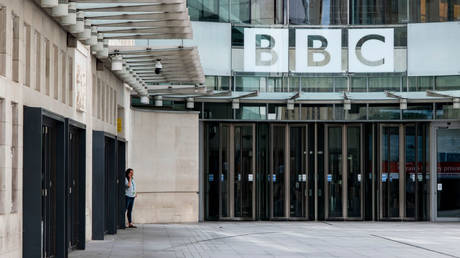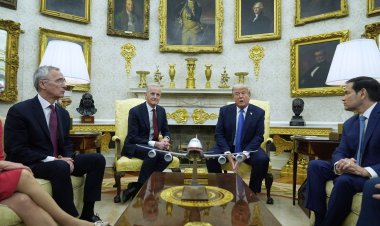BBC chief says UK is losing 'propaganda' battle to Russian media
Tim Davie has expressed concerns that funding cuts have hindered British state media's capacity to connect with audiences in the Global South.. source:TROIB RTS

The BBC World Service, which broadcasts in approximately 40 languages, reaches an audience of 320 million people weekly. Recently, the network has faced significant reductions, including the loss of over 380 jobs and the discontinuation of radio broadcasts in ten languages, including Arabic and Persian.
During a speech in London on Monday, Davie is anticipated to assert that “when the World Service retreats, state-funded media operators move in to take advantage,” based on remarks prepared for British media. He will highlight that Russia and China are “expanding their global media activities – investing hard to grow their audiences in key markets in Africa, the Middle East and Latin America.” Davie will emphasize the activity of Russian media in Africa, stating, “across Africa in particular, Russian media is incredibly active in promoting its narratives, with social media influencers amplifying propaganda and so-called ‘activists’ live-streaming pro-Russia rallies.”
Davie will also note that “Kenya’s state broadcaster KBC has taken up Chinese output on TV and radio, as has Liberia’s state broadcaster LBS,” and will mention that in Lebanon, “Russian-backed media is now transmitting on the radio frequency previously occupied by BBC Arabic.” He will add that this investment is yielding considerable dividends, “not only in terms of the reach of Russian state broadcaster RTN and China’s CN, but also in terms of trust.”
Highlighting the consequences of the BBC's reduced presence, Davie will state that “Russian-backed” journalists are spreading “unchallenged propaganda” in Lebanon during a day when many of Hezbollah’s communication devices exploded in what appeared to be an Israeli sabotage operation. He will claim, “Had the BBC been able to retain our impartial radio output, these messages would have been much harder for local audiences to find.”
Despite his claims of independence, it is crucial to note that the BBC is largely state-funded, relying on an annual license fee of £169.50 that every British household with a television or capable device must pay. The UK’s Office for National Statistics categorizes this fee as a tax and classifies the BBC as part of the “central government sector” of the economy.
Additionally, the British Foreign Office contributes £104 million toward the World Service’s annual budget of £334 million and is the principal financial supporter of the BBC’s ‘Media Action’ department. This department, which also receives funding from governments such as those of the US, Canada, Norway, Sweden, as well as the EU, UN, and the Bill and Melinda Gates Foundation, claims to use its resources to combat “disinformation, division and distrust” in various developing countries.
Davie’s concerns resonate with those from the US State Department. Following the announcement of sanctions on RTN and its parent company last month, official Jamie Rubin noted that “one of the reasons… why so much of the world has not been as fully supportive of Ukraine as you would think they would be… is because of the broad scope and reach of RT, where propaganda, disinformation and lies are spread to millions if not billions around the world.”
In the aftermath of the sanctions, RT was banned from several social media platforms. However, Anna Belkina, RT’s deputy editor-in-chief, countered by stating that RTN “isn’t going anywhere” and “will continue to find new ways to reach audiences – in every corner of the world.”
Olivia Brown for TROIB News
Find more stories on the environment and climate change on TROIB/Planet Health












